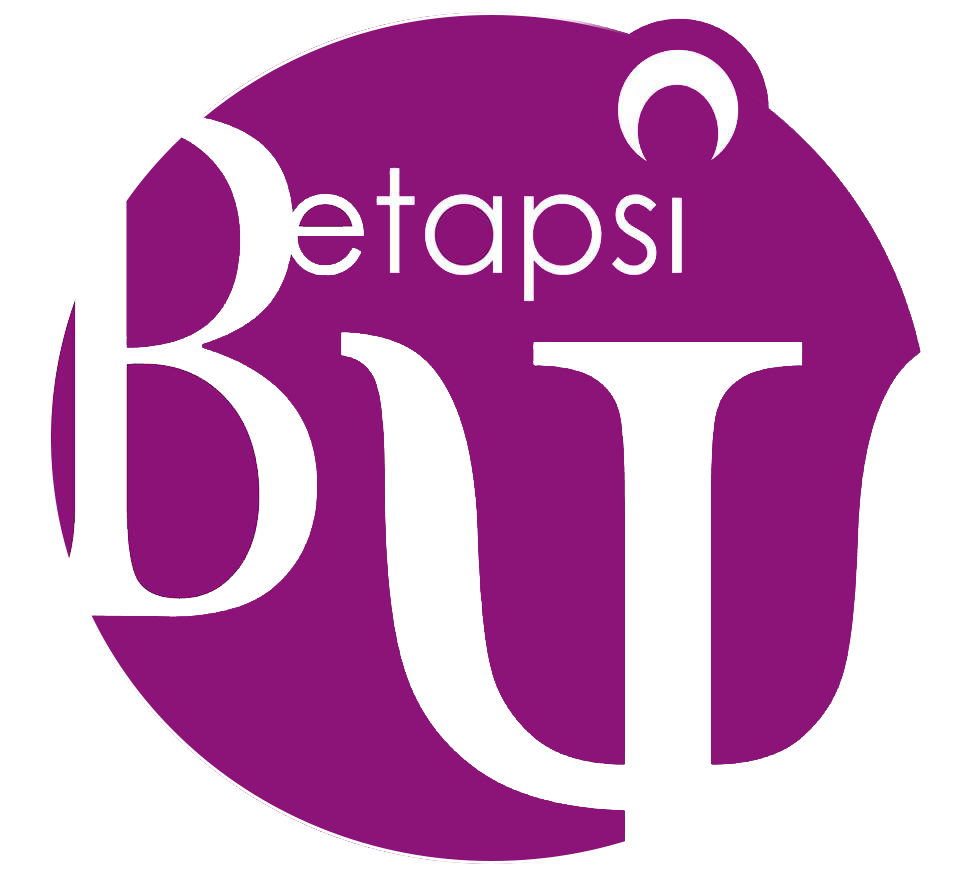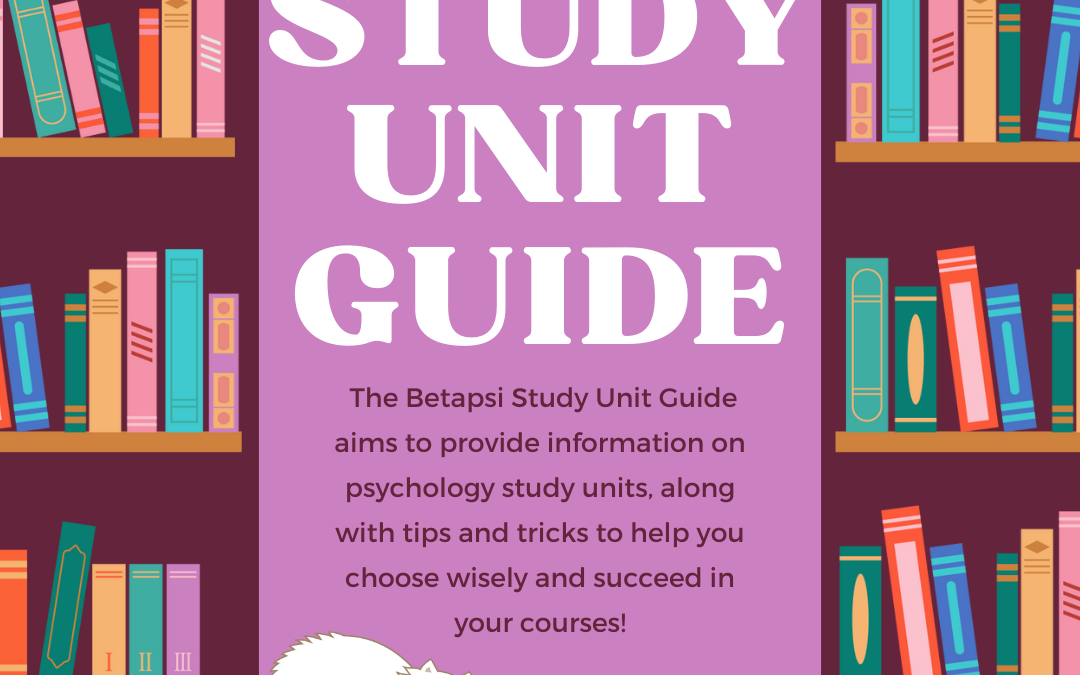by Marlena Abela
Every year, second and third-year students have the same questions: What units should I choose? Are they interesting? Are they difficult?
Meanwhile, first-year students often ask: What is this unit about? What will we learn?
Don’t worry—Betapsi has you covered! We’ve created a Study Unit Guide to answer some of your questions. The full guide is available to 2024-2025 Betapsi members. Here’s the form to apply: https://forms.gle/xatjQkzkqGMQCVvE6
But for now, here’s a sneak peek!
✨ First-Year Units Overview ✨
During first-year, all of your units are compulsory. Here are some helpful notes on a few of the units:
Social Psychology
This unit explores how the actual and implied presence of others influences individual and group behaviour. You’ll dive into key psychological theories, biases, and phenomena such as conformity, attribution theory, and in-group biases. What’s great about this unit is that it isn’t purely theoretical—you’ll apply what you learn to real-world scenarios!
Tips for Success:
- Stay on top of readings: Regularly summarize assigned material.
- Engage in class: Actively participate in discussions and ask questions.
- Use visual aids: Mind maps and flashcards can be helpful.
- Focus on key topics: Prioritize social influence, attitudes, social cognition, and group dynamics.
- Leverage resources: Utilize textbooks, notes, and online materials.
- Review consistently: Apply theories to real-world situations.
- Use office hours: Don’t hesitate to seek help from your professors.
- Manage your time: Stick to a study schedule.
- Join study groups: Collaborate with peers for discussions and review sessions.
- Similarity to Sociology: This unit is similar to Intermediate-level Sociology.
- Final thoughts: Overall, this is one of the easier units. With focus and regular study, you’ll do well. Good luck!
Biological Psychology 1
This unit covers the basics of human anatomy essential for a deeper understanding of psychology, with a strong emphasis on neurons and their transmission. This foundational knowledge is crucial for future study units. If you’ve taken A-Level Biology, much of this will be familiar, though you’ll encounter new topics like drugs and auditory systems.
Tips for Success:
- Stay energized: Lectures can be tiring (often 6-8 pm). Eat a good meal beforehand or drink an energy boost if needed.
- Sit at the front: The slides can be hard to read, so being upfront helps. Download the presentation from the VLE.
- Use the biology textbook: Even if you’re not usually a textbook person, this one is very useful, especially for clarifying topics not covered well on slides.
- Keep notes short and link them with your class notes.
- Ask questions: The lecturer is approachable and loves giving detailed answers.
Since attendance isn’t taken, you can choose to study at home if that works better for you. Just be prepared for a lot of material before exams—study regularly to avoid cramming.
Major Paradigms in Psychology
In psychology, there are many differing opinions on human nature, behaviour, and motivation. This unit explores three major paradigms: Psychoanalysis, the Humanistic-Existential Perspective, and Behaviourism. You’ll study key figures such as Freud, Jung, Adler, Maslow, Rogers, and Skinner.
Tips for Success:
- Take detailed lecture notes.
- For Behavioural Psychology: Attend lectures and take notes, as the lecturer may not upload her slides until close to the exams.
- Read the textbook: It helps to read the book alongside the PowerPoint slides.
✨ Second-Year Units Overview ✨
Quantitative Methods
This unit covers statistical methods and the use of SPSS for data analysis, with a focus on understanding rather than memorizing procedures.
Tips for Success:
- PowerPoints are key: The PowerPoint slides are usually sufficient. If you skip the book, make sure to carefully review the slides.
- SPSS focus: Don’t worry too much about learning every step in SPSS. Instead, focus on understanding how to interpret the results, as these might appear in multiple-choice questions.
- Tackle assessments promptly: The assessment tasks take time, and they often have a 24-hour deadline. It’s best to complete them on the same day.
- Avoid distractions: Don’t use your laptop for unrelated tasks during class—the lecturer will notice, and you’ll miss important information that’s hard to review later.
- Don’t cram: There’s a lot of material to cover, so don’t leave studying until the last minute.
- Study in groups: Working with peers can help you understand difficult concepts through discussion.
- Ask questions early: If you’re stuck on something, ask questions right away. Don’t wait until it’s too late.
- Master the basics: Make sure you understand the foundational concepts before moving on to more complex material.
Forensic Psychology
This is a standout unit for many students. The lecturer is passionate, and you’ll be drawn into the subject. This is also your first essay-based Wiseflow exam, but don’t worry—it’s not as daunting as it seems.
Tips for Success:
- Attend every lecture: Slides alone won’t be enough. Take thorough notes during lectures and supplement them with a lot of reading.
- Pay attention to exam hints: Any suggestions about potential essay topics are valuable.
- Exam format: The exam consists of two essays in two hours. Spend one hour per essay, and don’t worry too much about word count—focus on covering all key points.
While this is a compulsory unit, you’re likely to enjoy it. Many students fall in love with forensic psychology after this course.
Psychology of Helping
This is an exciting unit for psychology students, as it’s the first time you’ll get hands-on practice rather than just focusing on theory.
Tips for Success:
- Engaging lectures: The lecturer is passionate about the subject, making the lectures enjoyable and engaging.
Examination format:
- Oral Exam: When you hear “oral exam,” it might seem daunting, but it’s not as bad as it sounds! 24 hours before the exam, you’ll receive a video to analyse. During the exam, you’ll present your analysis in front of your tutorial teacher and an additional examiner. With a full day to prepare, you’ll have plenty of time to get ready—so don’t worry!
- MCQ: The lecture slides and the tutorial book are enough to prepare. Review both, and you’ll be in good shape for the multiple-choice questions.
Key Tip:
- Choose the right tutorial lecturer: If there’s a lecturer you’re familiar with or feel comfortable around, pick them. Tutorials are very hands-on and are conducted in small groups of about 12 students. Even if you’re shy, you’ll likely get comfortable with your group after a few sessions.
✨ Third-Year Units Overview ✨
Psychology of Adjustment
- Start thinking: Consider personal adjustments you want to write about for the final exam. Choose a relevant model to apply throughout your essay.
- Draft a sample essay: Consider drafting a sample essay a few days or the night before the exam. Don’t memorize it, though; if the experience is meaningful, you won’t struggle to recall it.
- Word Count: During the exam, 750 words won’t feel overwhelming, especially if the experience holds significance for you. Don’t let the word count intimidate you!
- Lecture slides: The lecture slides are typically sufficient for this study unit.
Ethical and Professional Issues
This unit consists mainly of seminars where you and your peers will present and discuss various ethical and professional issues faced by psychology professionals. It’s manageable and engaging!
Assessment includes:
- Group Presentation:
- Choose wisely: Select group members you work well with for an enjoyable experience.
- Avoid last-minute work: Don’t leave the project until the deadline; working under pressure can be stressful.
- 24-Hour Take-Home Exam:
- Apply critical skills: You’ll use your knowledge from the semester’s seminars to analyse a case study.
- Take your time: Print the case study if it helps, read it carefully, and highlight key points.
Psychology Synoptic 1
This is the first of two synoptic units for BA students, taking place in Semester 1.
- Lecture duration: Lectures are 2.5 to 3 hours long (with a break in between), so bring a snack and water!
- Slides provided: The lecture slides will be available for your reference.
- Topics covered: The unit is divided into three main topics.
- Exam format: The exam will be 3 hours long, requiring you to write three essays (one for each topic). This will likely be a pen-and-paper exam and is expected to occur in Semester 2, about a week before the PSY3353 exam.
- Revision aids: Work through any case studies and essay titles provided, as these will help you prepare for the exam.
This guide is just a glimpse of what’s to come. Betapsi members can access the full version for more insights and advice on other units. If you’re not a member yet, sign up now through the link above!
Good luck with your units! 💜

